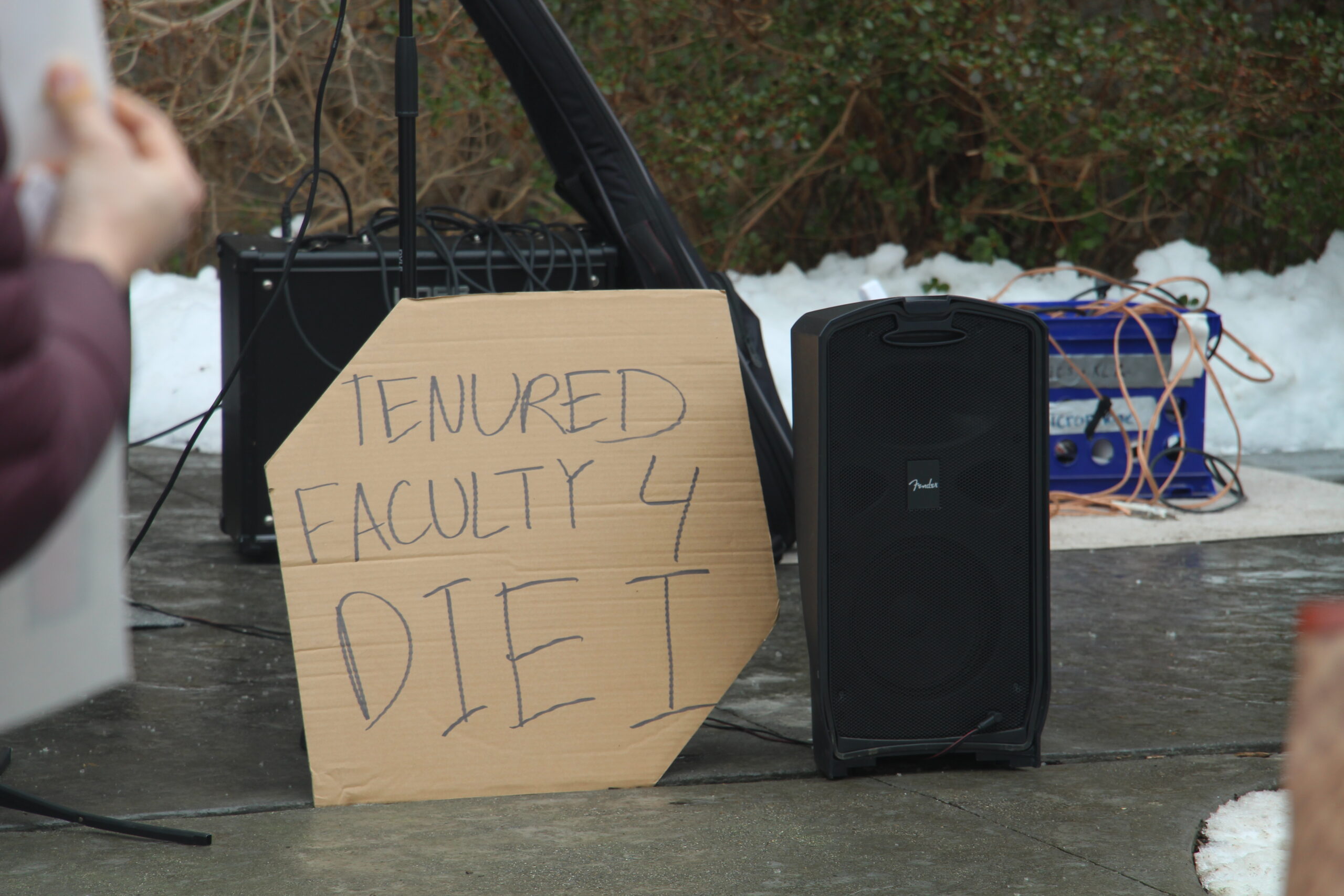The Health Center at Connecticut College has an infamous reputation for both delaying student appointments and its policy of being closed on weekends. The lack of accessibility last semester, which students ascribe to poor organization, was actually a result of understaffing. Laura O’Connell, one of the nurses, told The College Voice that it was an “incredibly stressful semester. We were operating with only half of the usual staff. I’m working on a degree right now and I was struggling every day to balance writing papers and working extra hours for my job.”
The Voice spoke with Cate Moffet, Director of Student Health Services, and Health Center employee Elizabeth “Lizzy” Henry ’07, about their experiences in the Health Center and their feelings toward students’ disdain.
The College Voice: How did you get involved with the College Health Center?
Lizzy Henry: My husband had the opportunity to relocate for work and we moved to East Lyme, which is the town I grew up in and where most of my family lives. When my daughter turned 15 months I was ready to go back to work after being off since her birth. I’ve always been interested in College Health and have a great relationship with Conn. When another CC graduate who happens to be my neighbor told me about the job posting on the Conn website, I jumped at the opportunity. I was eager and ready to get back to work after having a baby and also excited to work at such a great college with a population I’ve always been excited to work with.
TCV: What has changed about the Health Center since you were a student?
LH: The Health Center is more modern now. Aside from the renovation to the waiting area, there weren’t electronic medical records when I was a student. Having an EMR, electronic medical records, really helps improve accuracy and efficiency of documentation and communication. The influence of social media also marks a change. The health center has a Facebook page and Twitter account, both of which help facilitate communication between our staff and students. Social media helps improve access to patient education and increase knowledge and awareness about services the Health Center offers.
TCV: Have your personal feelings towards the Health Center changed since you began working there?
LH: As a student, I always had positive experiences at the Health Center, and I think that is why I was excited to work here. I have come to appreciate more what a great place this is to work and how fortunate the students and providers are to have such a unique amount of time for visits and accessibility to each other.
I love working with the students because they are so eager to learn and educate themselves about their health. Students are at this dynamic time in life when they are learning to live independently and navigating how to be an adult. Understanding and utilizing the healthcare system is an important part of this, and I hope that we can help teach the students so it is less intimidating when they are out on their own.
TCV: What is the most common student illness/injury you take care of?
Cate Moffet: Upper respiratory infections (colds, sore throats). The most common injuries are ankle sprains.
TCV: Are not enough students getting their flu shots?
CM: It would be much better if more did, but we had a very good response this year and it is still not too late to get one! The flu has barely arrived and the antibodies can take just 2 weeks to develop after the immunization.
TCV: The Health Center was working with half of its usual staff last semester. How did this affect the workload? Are you at full staff now?
CM: Unfortunately, as we were understaffed this fall, our appointments occasionally ran late and some students were not seen as quickly as we would have liked. We are fully staffed now.
TCV: Lizzy, where do you believe the negative reputation is derived from? Is it justified?
LH: I’m not sure what you mean by negative reputation. I know some students were frustrated with the wait time to be seen last semester. I think one thing that can be challenging is that providers are seeing patients when they are typically not feeling well. Often, students can be frustrated by their illness, whether physical or mental, and just not feeling well can color an experience.
I think another issue involves the challenge of meeting patient expectations. Many times patients want a quick fix or believe certain medications will help them feel better faster. It can be difficult because sometimes the appropriate treatment or plan of care is allowing time for the illness to get better, which is not always in line with what a patient thinks they need. This frustration is very familiar to me and was encountered commonly in the retail walk-in clinic where I previously worked. Many patients would come in requesting antibiotics to help with cold symptoms, for example. I was challenged to not give these medications because I know they are not helpful and can cause more harm than good. Educating and communicating this to patients can be very difficult when I was allotted about 15 minutes for an appointment in my previous job.
Lastly, I think students can get frustrated by the fact that accurately diagnosing certain conditions/illness can take time. A conclusive answer is not always present during the first encounter with a patient. Although healthcare is a science, it is also an art, and figuring out the answer can be a puzzle that takes time to solve.
What I enjoy so much about working at the Health Center is that I have a great opportunity to take the time to educate students and follow up with them closely. It’s a win-win situation because I am able to teach, and hopefully students are able to learn about their illness. I know providers at Student Health Services strive to treat every patient with professionalism and care. We value honesty, compassion, good listening and a mutual respect between patients and providers. We believe that having open communication and transparency regarding how the healthcare system works and what it costs, that everyone will have a positive experience at health services.
TCV: Considering the frequency of injury on weekends, why does the College close the Health Center?
CM: We continue to monitor this issue. We are best suited for primary care preventative care, and management of chronic illnesses. Accidents often (not always) are better evaluated where there are labs and x-rays available. We encourage students who need care urgently during the weekend to seek care at Physician One in Groton if appropriate. By exchanging medical information with our Student Health Services and Physician One the cost of the Yellow Taxi fare is covered by the College. This information is on our web site as well as on posters in the residence halls.
That said, our recent survey with a 24% response rate concerning care on weekends and the free taxi service to Physician One on Saturdays and Sundays was surprisingly positive: 65% of the respondents felt that the plan met their needs or that they were not concerned with care on weekends.
We recently conducted satisfaction surveys and one of the top “complaints” was the ability to get appointments when students wanted. We are very excited to announce we are going to start on-line scheduling in 2 weeks so that students can better access appointments at all hours! •









